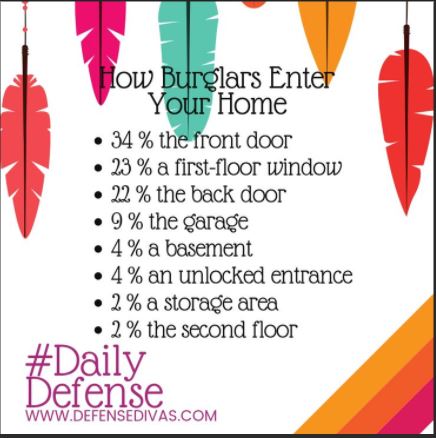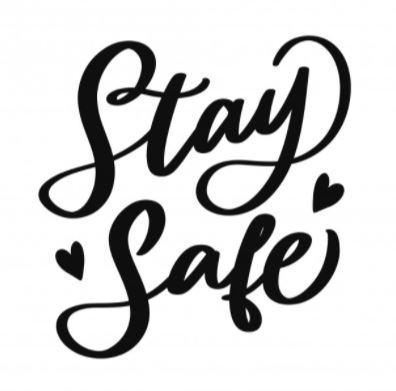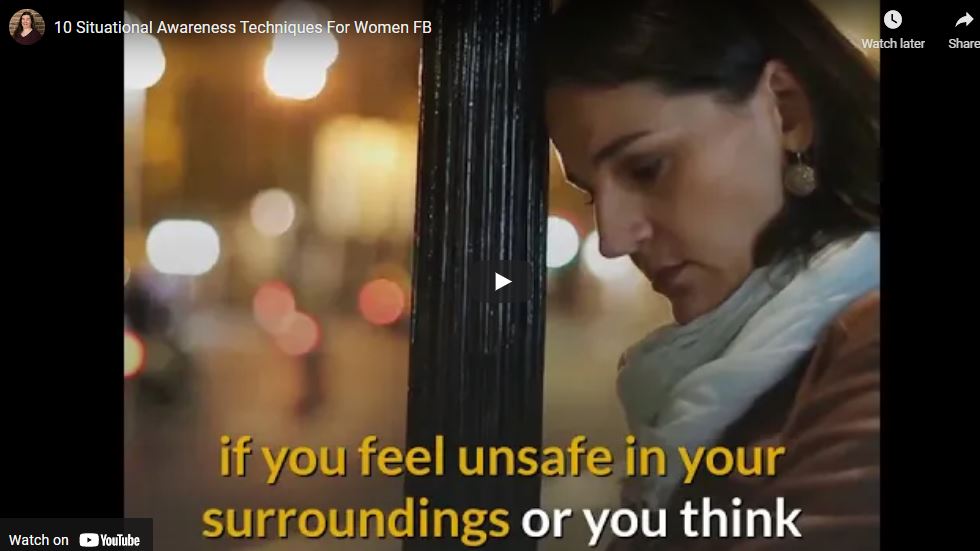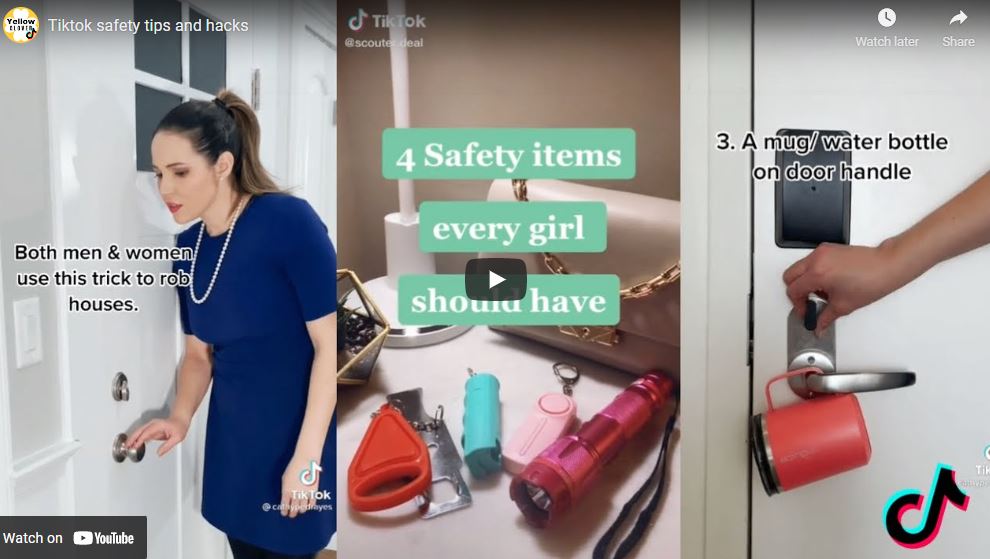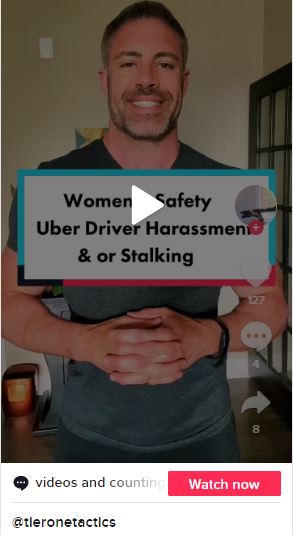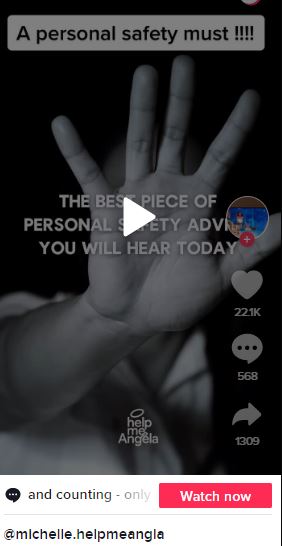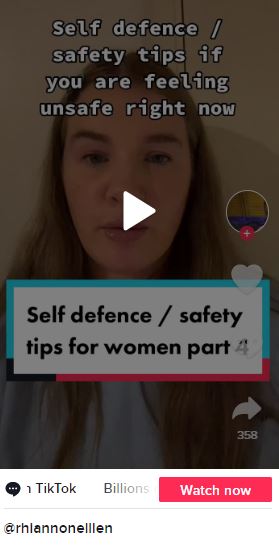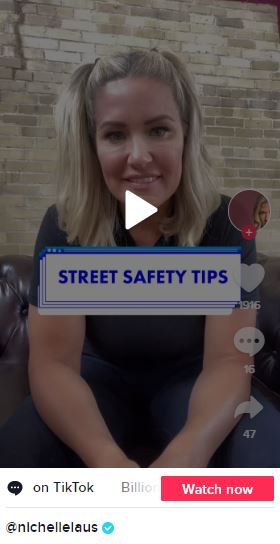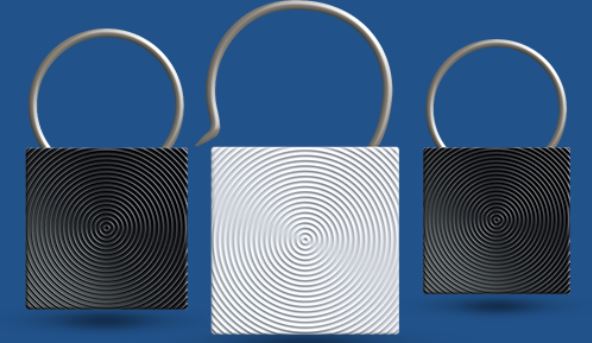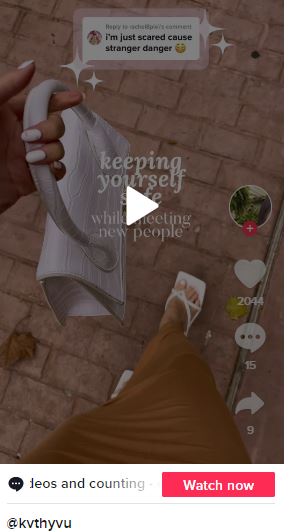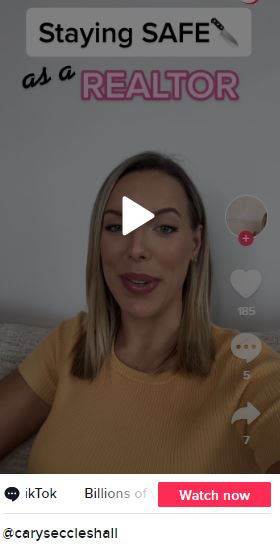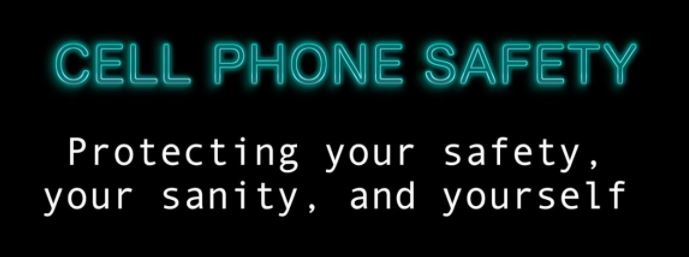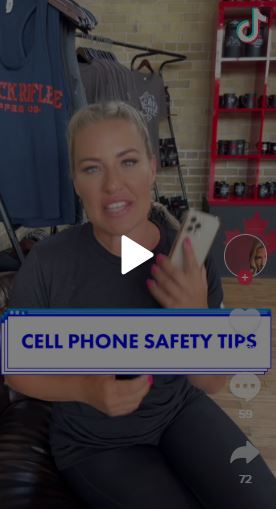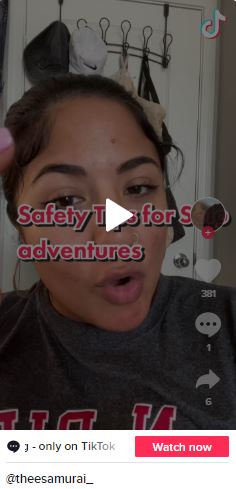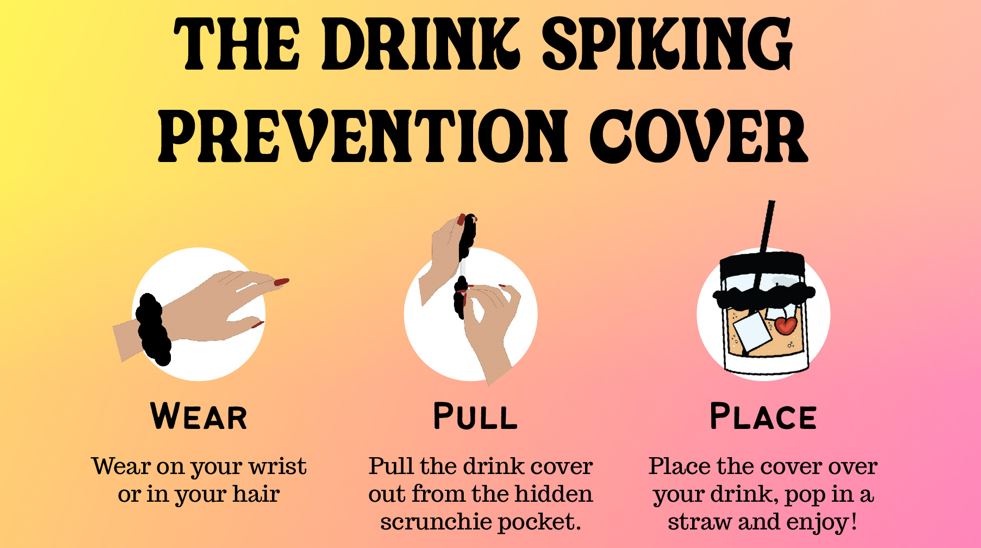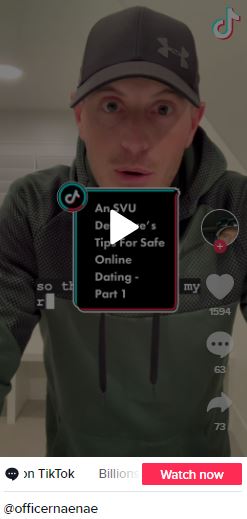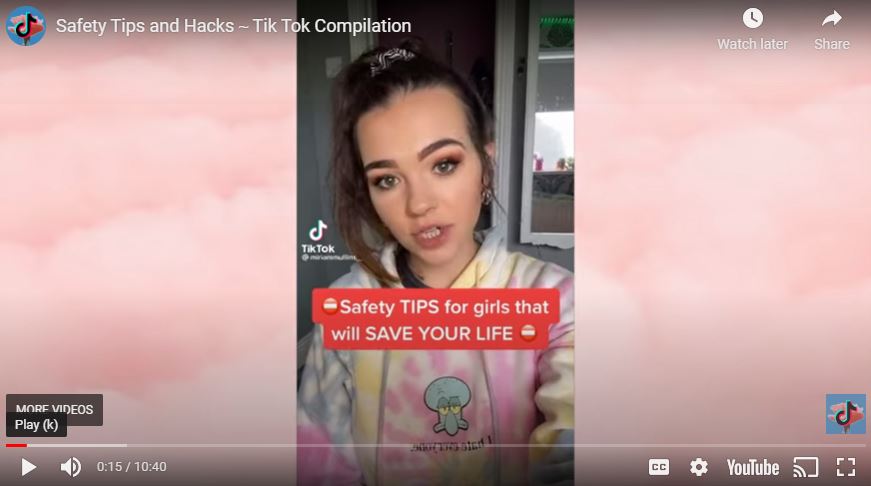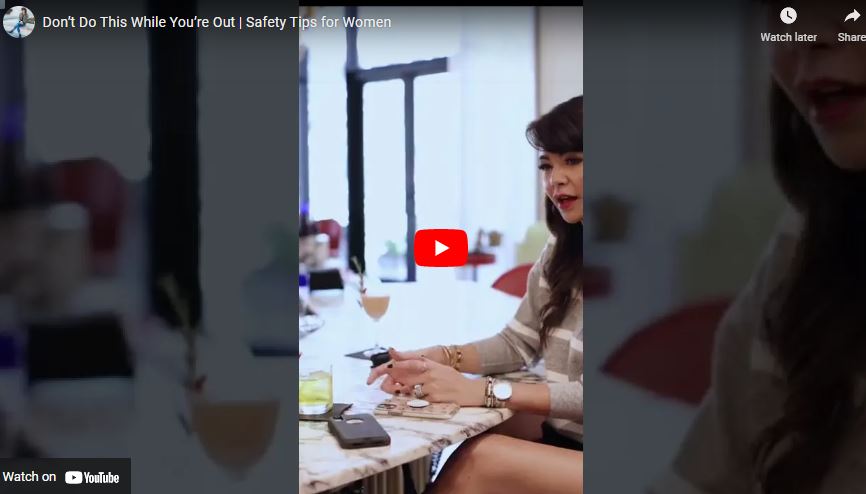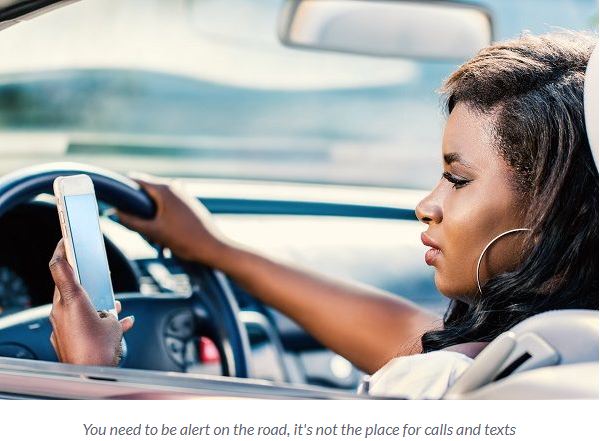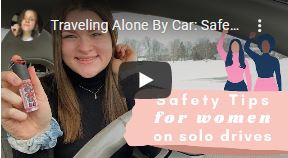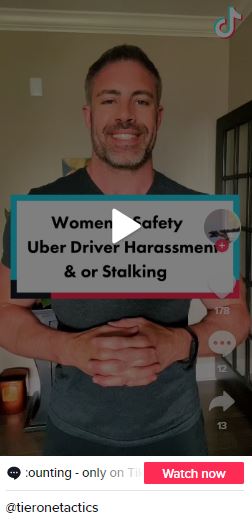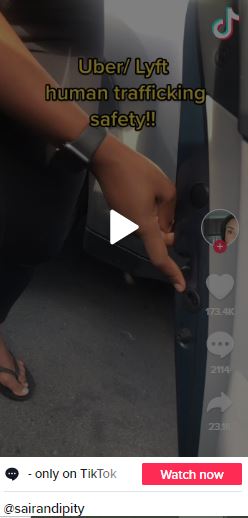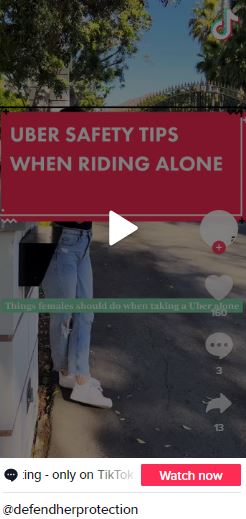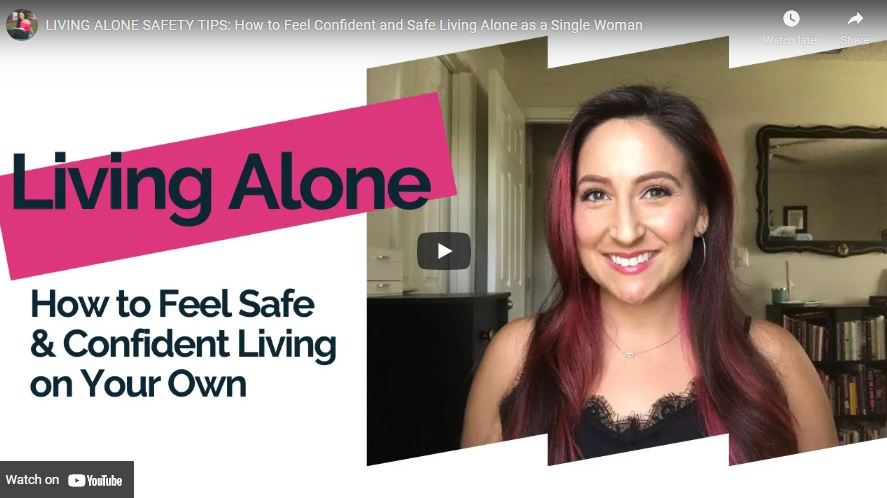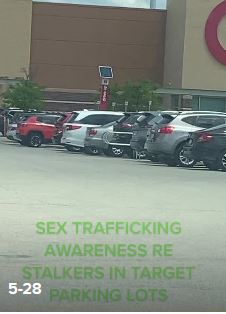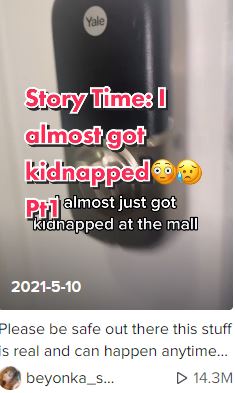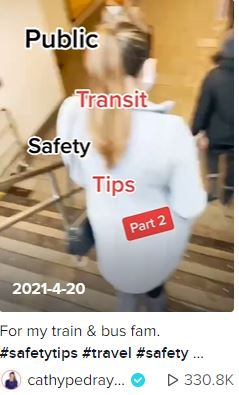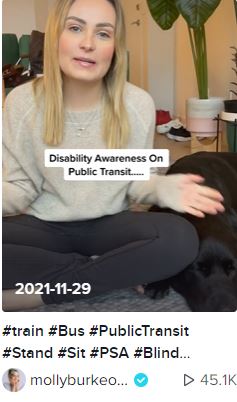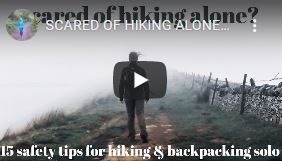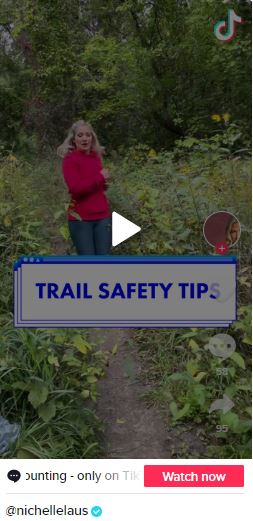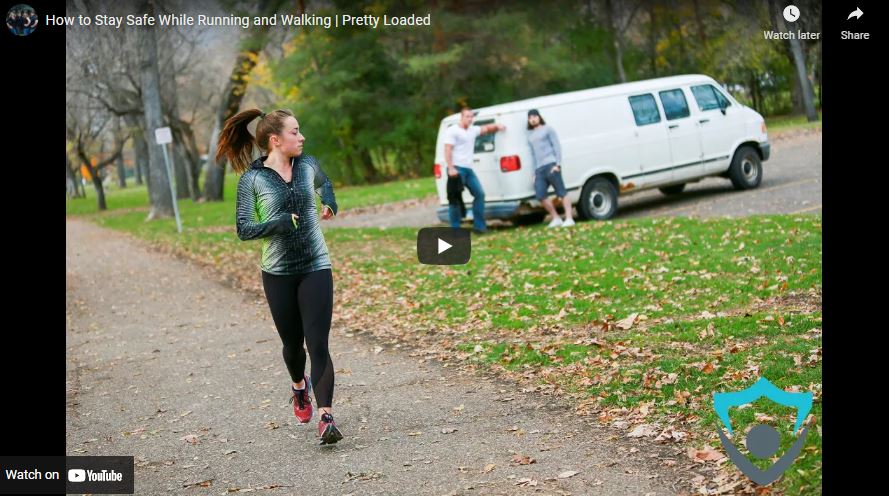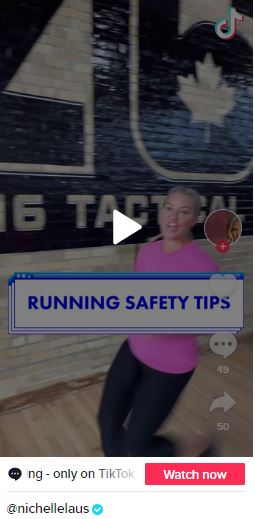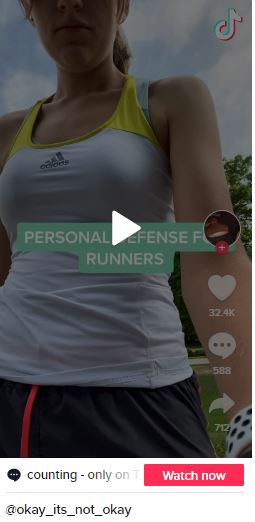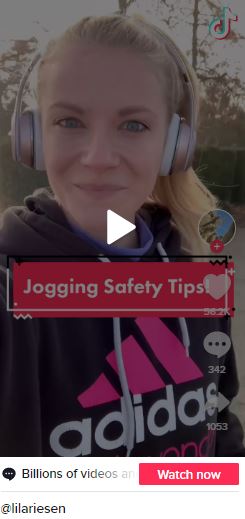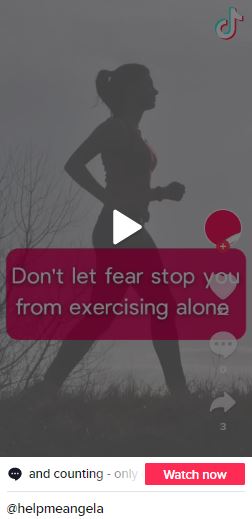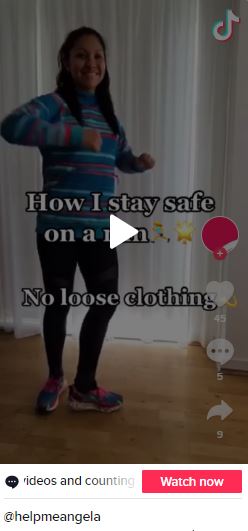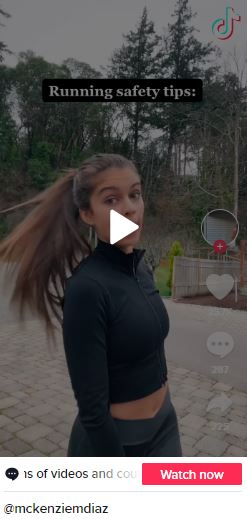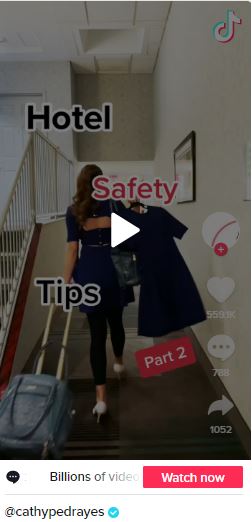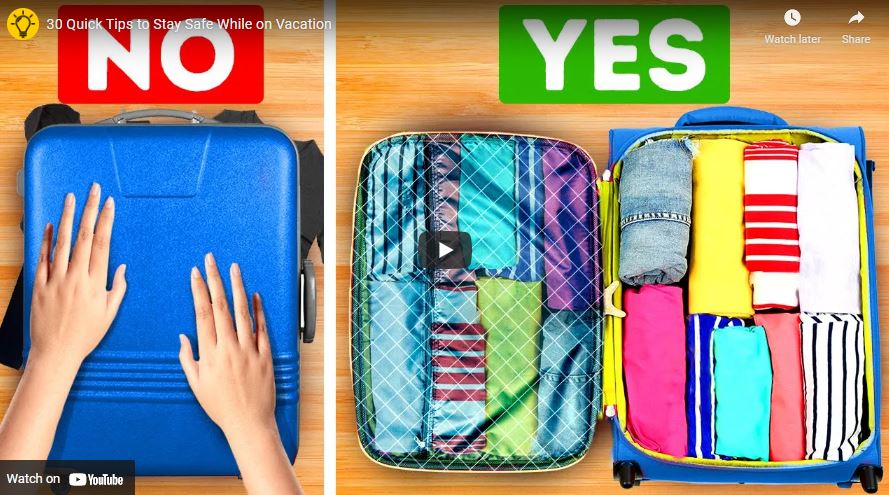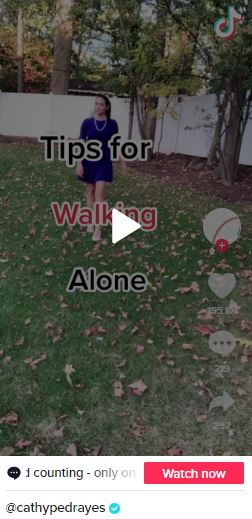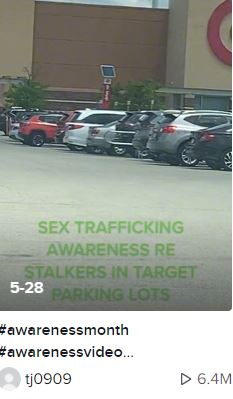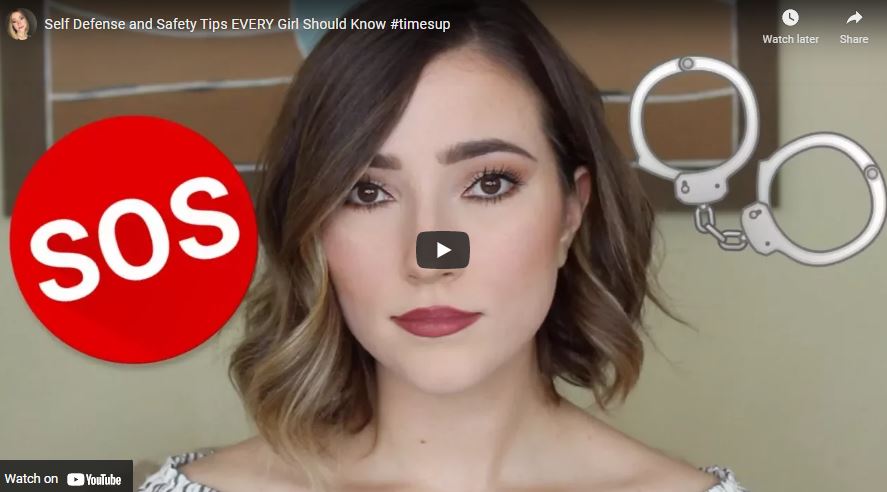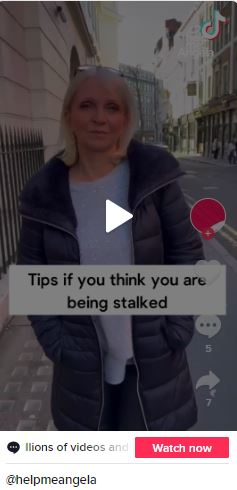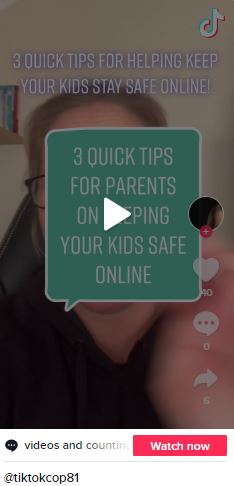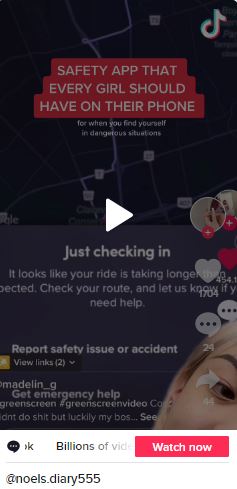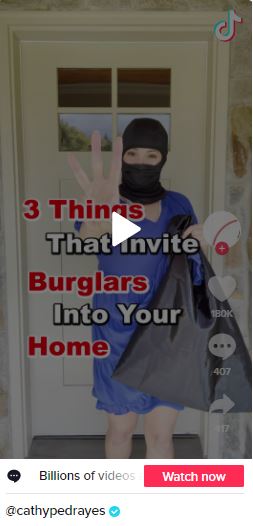FOR SUBSCRIBERS ONLY
Safety Tips

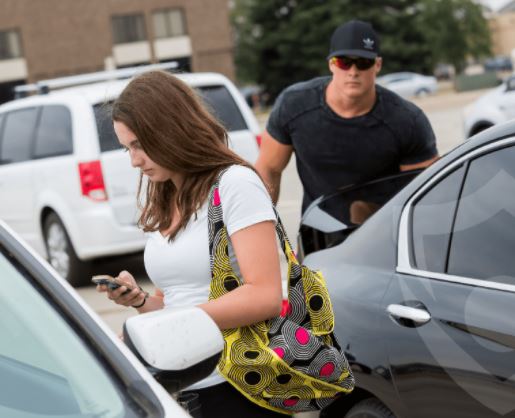
PAY ATTENTION TO YOUR SURROUNDINGS!
PUT YOUR PHONE DOWN!!!
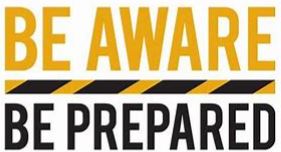
Please take a minute to watch the video below on “Situational Awareness” – it could save your Life!

An ounce of prevention is worth a pound of cure.

Situational Awareness is. . .
. . . “the ability to identify, process, and understand what is happening around you, while thinking ahead to prevent or mitigate potential safety incidents. It requires you to stay alert and draw upon your unique set of experiences and skills to evaluate your environment. Successful situational awareness requires a proactive and flexible mindset, which can be achieved through regular practice.” (arrowheadtribal.com)
Situational Awareness: How to be Vigilant in Public Places (On Guard)
Top 10 Ways to Practice Situational Awareness Everyday – Rogue Preparedness – how to get prepared for emergencies and disasters (Rogue Preparedness)
5-part Series on Situational Awareness on Morgan’s YouTube Channel below

DESIGNED TO KEEP YOU AND YOUR LOVED ONES SAFE
Invisiwear products work internationally in over 150 countries!
Self-Defense and Beauty: 8 Beauty Products That You Can Use As Weapons | Allure (Whether you’re in a dark alley or in your own home!)
“I say: Use what you’ve got, and the more tools on you, the better,” says self-defense expert Jennifer Cassetta. “There are probably lots of male self-defense instructors who are going to see this article and be like, ‘Oh, that won’t work,’ but that’s just what I deal with on a day-to-day basis from the self-defense world.”
Watch Jennifer Cassetta’s video – “The Shortest Self-Defense Class Ever!” (Self Defense – Jennifer Cassetta)
Only 3 minutes, 33 seconds!
5 moves!
Jennifer created Stilletto’s & Self-Defense in 2009, but “I’ve hung up my stilettos and now teach She Warrior Self Defense for women and gender-neutral Personal Safety and Self defense seminars for all.”
SAFETY TIPS




Click Here for SAFETY TIPS – How to Avoid/Prevent/Escape a Bad Situation! (TikTok & You Tube Videos)

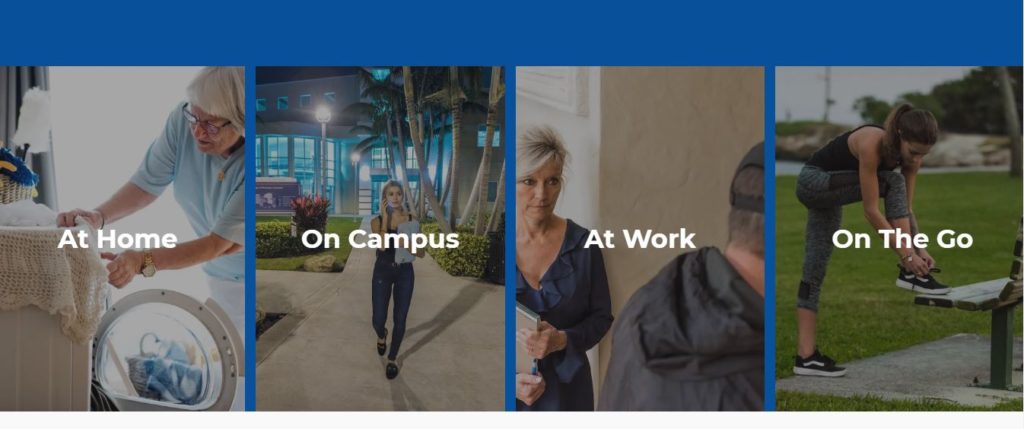
Ripple is “the world’s first wearable support network” ~ a wearable safety device that keeps you – or a loved one – connected to a professional monitoring team 24 hours a day, 7 days a week, anywhere in the United States.
The device itself consists of a small square-shaped device that can easily be clipped onto a zipper – say, the zipper on your jacket. This is called the Ripple Button.
After clipping the device on your zipper, you enjoy 24/7 monitoring anywhere in the United States by a professional team of safety experts.
As the makers of Ripple explain, the “team knows all your vital information ahead of time, saving you invaluable time during an emergency situation.”
To activate Ripple’s emergency response, you tap the button three times. This contacts the Ripple team, then immediately dispatches emergency responders to your location.
Who is Ripple Designed For?
Here are some of the reasons why the creators of Ripple want you to use their device:
- Walking back to your dorm at night across campus
- Walking to your car in a poorly-lit parking lot
- Walking home through your neighborhood at night
- Investigating a suspicious sound at night in your backyard
- Lost in an unknown city or part of town you’ve never been in before
- When you “need a convenient interruption to disrupt an awkward encounter”
Essentially, Ripple is an emergency call button you can press at any time to alert emergency services.
MEETING WITH STRANGERS ?
For work or other activities, do you need to
meet with strangers
– ALONE –
outside a safe environment?
For More Safety Tips
More Safety Tips for Real Estate Agents (and others who meet with Strangers for work)
7 Smart Safety Tips to Empower Real Estate Agents in the Field
(homelight.com)
10 Best Safety Tips for Real Estate agents
(casanovabrooks.com)
A Smart Approach to Safety: 18 Tips for Real Estate Agents
(veteransunited.com)


3. Turn off Bluetooth when not using.
Bluetooth allows your phone to communicate with other devices, such as the hands-free option in your car or your printer. If accessed by someone else though, they could misuse it to access your information or intercept your calls. Turn off the Bluetooth on your phone and turn it on only when you need to connect with other device. Many phones also allow users to set passcodes or additional security levels on their Bluetooth as well. Use all available options to increase your privacy.
(Source: 12 Tips Cellphone — Technology Safety (techsafety.org))
CYBERBULLYING


We all want cyberbullying to stop, which is one of the reasons reporting cyberbullying is so important.
But creating the Internet we want goes beyond calling out bullying. We need to be thoughtful about what we share or say that may hurt others. We need to be kind to one another online and in real life. It’s up to all of us!
(Source: Cyberbullying: What is it and how to stop it | UNICEF
For Parents, Family Members, Teachers, Educators, Young Adults & Teens
Internet Safety for Kids | How to Keep Your Kids Safe Online
(Source: Consumernotice.org | Written By : Terry Turner | Edited By : Kim Borwick | Last Modified: August 18, 2021)
Threats to children’s internet safety include invasions of privacy, cyberbullying, sexting and harassment. Options to protect your children include parental controls, apps and tracking software. But the most effective way to keep your kids safe is to talk with them about online risks, how to avoid them and how they can come to you when something goes wrong.
Internet safety for kids depends on parents being aware of online risks and understanding how to help their children and teens avoid them.
Almost every American child and teen has access to the internet. They socialize in online games or on smartphones just as they would on a playground. They live largely in a digital community. But like any community, there are risks and dangers.
Parents are the best suited to monitor kids’ online activity. They are also the most trusted adults most kids will turn to if they experience online dangers. Understanding what your children or teens do online is vital to protecting them from digital threats. . .
What Are Kids Doing Online?
~ 30 percent have used the internet in ways their parents wouldn’t approve
~ 21 percent have visited sites where they can chat with strangers
~ 17 percent have visited porn sites
~ 11 percent have visited sites that offer ways to cheat on homework
~ 4 percent have visited online gambling sites
Source: Children’s Internet Usage Study, Center for Cyber Safety and Education (Grades 4-8)
TOPICS in article:
♦ How Children and Teens Get Online
♦ Online Dangers to Discuss with Your Kids
♦ How to Set Rules
♦ Steps You Can Take to Protect Your Children Online
♦ Using Tech and Apps to Protect Your Kids Online
♦ Monitoring, Tracking and Limiting Your Child’s Online Activity
♦ Filtering Out Inappropriate Content
♦ How to Teach Your Kids to Use Their Smartphones Responsibly
♦ Your Child’s First Smartphone | 5 Things to Think About
♦ Make Sure Your Teen Understands the Dangers of Texting and Driving
♦ Teaching Your Teens How to Use Social Media Safely
♦ Tips for Teen Safety on Social Media
♦ Cyberbullying Prevention
♦ Signs Your Child Is Being Cyberbullied
♦ What Parents Can Do to Deal With Cyberbullies
♦ Teach Your Child How to Stand Up for Cyberbully Victims
♦ How to Talk to Your Teens About Sexting | 5 Things to Tell Your Teens About Sexting
♦ What You Should Know About Your Kids and Online Gaming
♦ How to Keep Your Child Safe in Online Gaming
♦ What to Do If Your Child’s Safety Is Threatened Online
More Links for Online Safety
https://staysafeonline.org/ (National Cybersecurity Alliance)
https://www.consumer.ftc.gov/features/feature-0038-onguardonline (Federal Trade Commission – Consumer Information)
https://www.getsafeonline.org/ (Get Safe Online)
https://www.wiredsafety.com/ (Wired Safety) This has a ton of info and links to long articles!!
Date Rape: What Drugs To Watch Out For In Social Settings (therecoveryvillage.com)
Date Rape Drug List and Side Effects (medicinenet.com)
Date Rape Drugs | Never Alone Recovery
Date-Rape-Drugs: Criminal Sexual Assault | Forensic Psychiatrist | Texas

What you can do
Women and men on guard against sexual assault are more aware than ever before that they must not assume trustworthiness by association (e.g. a friend of a friend.) That said, drugs of all kinds, including recreational drugs, can mask a more sinister purpose.
The buddy system is a good idea for both kindergarteners and clubbers: party with a close friend.
Don’t accept, or purchase, drugs from a stranger, and watch your body for an unexpected response. For example, if Ecstasy is sedating, something is wrong. Other tips include drinking slowly, keeping an eye on your beverage from when it’s poured to the last sip and obtaining a fresh drink after leaving it unattended.[3]
If you suspect you have been sexually assaulted under the influence of a date rape drug, report it to law enforcement immediately. Even if your recollection is impaired, a rape kit and toxicology screen doesn’t require a lucid memory and is essential to a prosecutor when there has been a drug-facilitated sexual assault and suspected assailants.
(Source: Date-Rape-Drugs: Criminal Sexual Assault | Forensic Psychiatrist | Texas (forensicpsychiatrynow.com)
Tips from Experts at the CIA & FBI
They could save your Life!
15 Dating Safety Tips You Need to Know | StyleCaster
Here Are the 10 Safest Dating Apps for 2021 | Safety.com
Online Dating and Dating App Safety Tips | RAINN
How to Use Online Dating Apps Safely (verywellmind.com)
12 online dating safety tips and rules for women (vkool.com)
Dating Violence Prevention | Youth.gov
Preventing Teen Dating Violence | CDC
9 Ways to Prevent Teen Dating Violence (verywellfamily.com)
50 Ways to Keep Yourself Safe from Sexual Assault | TBOTECH
3 Ways to Protect Yourself from Sexual Predators – wikiHow
How to spot a sexual predator – the 8 characteristics – Healthista
Bumble CEO on Supporting Survivors and Creating Safer Dating Experiences (RAINN – June 7, 2021)

Avoid Specifics.
Chatting about things like your job title, company you work for, college you went to, or neighborhood you live in are typical online dating small-talk topics, but they’re not so harmless, says Jason Hanson, CIA agent and author of Spy Secrets That Can Save Your Life. “Never give specific details about your job or where you like to hang out because then some creeper will know where to find you.” It might seem boringly vague, but consider it a challenge to your conversational skills to find something else to chat about.
Using a Personal Safety App Doesn’t Make You Paranoid
Googling Someone isn’t Paranoid—it’s Smart.
If you knew ahead of time your date had a record, would you still go out with him or her? “We tend to show only our best side when getting to know someone—so buyer beware,” says Delong. “Always do at least a simple Google search on a potential date, and an advanced search is even better. Try to verify what they are telling you about themselves.”
(Source: 15 Dating Safety Tips You Need to Know | StyleCaster)

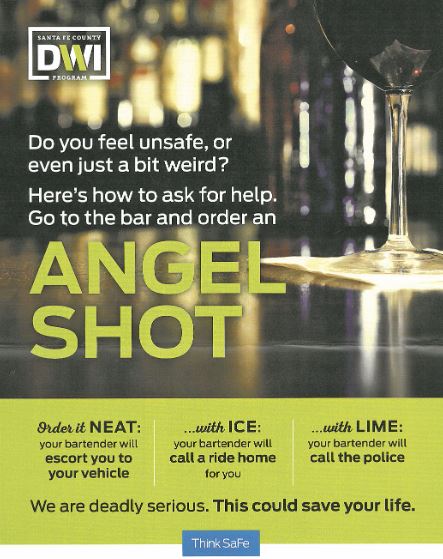
Read More about Angel Shots in this MSN article from 8/4/22
Please help spread the word.
Not all Bartenders & Servers know about Angel Shots.
This could save someone’s Life!!
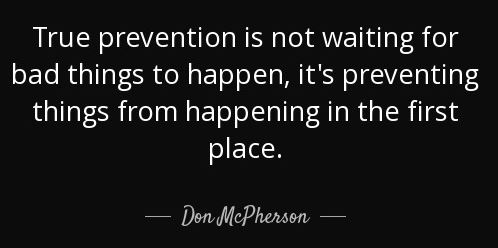
COLLEGE STUDENTS' SAFETY ON & OFF CAMPUS

Bumble CEO on Supporting Survivors and Creating Safer Dating Experiences (RAINN – June 7, 2021)
Top 10 Safety Tips for College Students | Fastweb
10 Ways to Stay Safe on Campus in 2021 | Safety.com®
10 Safety Tips For Your College Student | HuffPost
9 Ways to Keep Safe on Your College Campus | SafeWise
Safety for Students | RAINN (Staying Safe on Campus | Alcohol Safety | Prevention of Sexual Assault)
SafetyPlan_College_Students.pdf (loveisrespect.org)
11 Social Media Safety Tips For Students | Technology (teachthought.com)
14 Safety Tips for Uber and Lyft Riders | Safety.com
10 Best Personal Self Protection Devices for Women in 2021 (expertsecuritytips.com)
50 Ways to Keep Yourself Safe from Sexual Assault | TBOTECH
4 Ways to Walk Safely at Night – wikiHow
How To Stay Safe At A Party – Society19
How to Stay Safe at College Parties (theodysseyonline.com)

Don’t allow technology to make you unaware of your surroundings.
Everyone with headphones, a smartphone and an MP3 player knows – the minute you’re plugged in, you barely exist anymore! You stare at your phone, zoned out; not knowing what is going on around you. This, in essence, is exactly what you should be avoiding. When you start to find yourself becoming unaware of what’s going on around you is the time you need to consider turning the music down, putting your phone away and opening your eyes to what’s happening.
Ripple is “the world’s first wearable support network” ~ a wearable safety device that keeps you – or a loved one – connected to a professional monitoring team 24 hours a day, 7 days a week, anywhere in the United States.
The device itself consists of a small square-shaped device that can easily be clipped onto a zipper – say, the zipper on your jacket. This is called the Ripple Button.
After clipping the device on your zipper, you enjoy 24/7 monitoring anywhere in the United States by a professional team of safety experts.
As the makers of Ripple explain, the “team knows all your vital information ahead of time, saving you invaluable time during an emergency situation.”
To activate Ripple’s emergency response, you tap the button three times. This contacts the Ripple team, then immediately dispatches emergency responders to your location.
Who is Ripple Designed For?
Here are some of the reasons why the creators of Ripple want you to use their device:
- Walking back to your dorm at night across campus
- Walking to your car in a poorly-lit parking lot
- Walking home through your neighborhood at night
- Investigating a suspicious sound at night in your backyard
- Lost in an unknown city or part of town you’ve never been in before
- When you “need a convenient interruption to disrupt an awkward encounter”
Essentially, Ripple is an emergency call button you can press at any time to alert emergency services.
Tips for Women Traveling Solo, From Dining Out to Hotel Safety – The New York Times (nytimes.com)
20 Tips for Eating Out Alone – From A Seasoned Solo Diner | Indiana Jo
How To Choose The Best Safest Seat In A Restaurant Or Public Place (modernsurvivalblog.com)
10 Best Personal Self Protection Devices for Women in 2021 (expertsecuritytips.com)
50 Personal Security Tips (modernsurvivalblog.com)
Trouble Can Emerge At Any Time, So Be Alert, Be Ready (modernsurvivalblog.com)

Consider these points while choosing the safest seat:
– Choose a seat which has the best line of sight to entrances and exits (especially entrances) without having to turn your head much while seated.
– Do not be the closest seat to the entrance – which is an immediate point of focus.
– Being tucked into a booth will be a hindrance, so better to choose a table.
– Avoid choosing a seat out in the middle. Best to sit closer to a wall, facing out – although not directly up against the wall which could hinder movement and options.
– It is very important to be seated in a position where you can get to your feet quickly and start moving.
– Choose a seat that enables you to see as many people as possible.
– If possible, choose a seat that allows you to be as far away from the main entrance but closer to a secondary exit.
(Source: How To Choose The Best Safest Seat In A Restaurant Or Public Place (modernsurvivalblog.com)
8 Safety Tips for Women from a Woman Cop (corporatetravelsafety.com)
Three Crucial Safety Tips for Women Who Drive Alone – Car Maintenance and Car Repairs – DriverSide
Road Safe: Tips For Women On Solo Road Trips | GoNOMAD Travel
15 must-read road safety tips for women driving alone | naijauto.com
Safety Tips for Women Drivers – Women Against Crime | Albuquerque, New Mexico
How to stay safe when driving alone (goodhousekeeping.com)
10 Best Personal Self Protection Devices for Women in 2021 (expertsecuritytips.com)
Trouble Can Emerge At Any Time, So Be Alert, Be Ready (modernsurvivalblog.com)
Tips on How to Prevent Kidnapping and Protect Yourself | TBOTECH

Carjacking Avoidance
Always park in well-lit areas
Don’t park near or next to obstructions like walls, etc.,
Choose an attended garage or use valet parking
While walking to your car, maintain situational awareness while alert to suspicious people sitting in cars
Ask for a security escort if you are alone at a shopping center and feel uncomfortable
Watch out for loiterers in the area
Maintain a posture of confidence
If being approached, change direction or go to a busy area
As you approach your car from a distance, look underneath
As you near your car, look around, and inside
Open the door and enter quickly, and lock the doors
Don’t become a target by turning your back while loading packages into the car
Once inside the car, start it and drive away immediately
(Source: Carjacking: Victim or Avoidance (modernsurvivalblog.com)

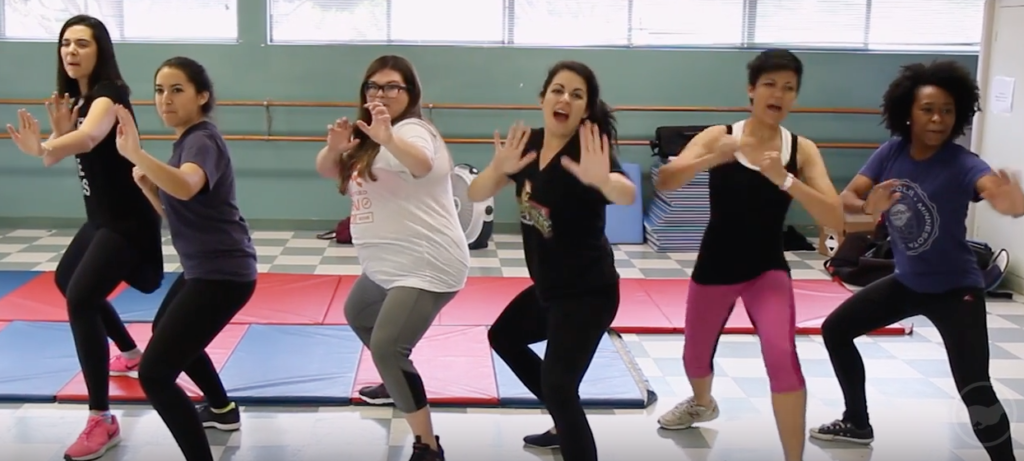
MORE SAFETY TIPS DO's & DON'Ts
Click the link below to read the full article from Issues I Face
(By Authors: Sgt. Darren Laur and his wife, Beth Laur)
TOP 10 SAFETY TIPS FOR WOMEN
Click Here to Read More About Tracey & Charlie Vega, Founders of Simple Self Defense for Women

LIVING ALONE
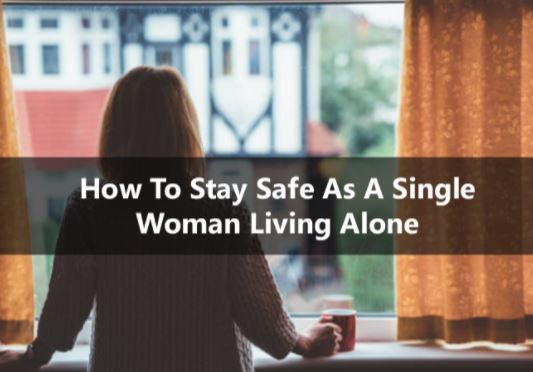
Tips For Single Living (unitedlocksmith.net)
8 Safety Tips for Women from a Woman Cop (corporatetravelsafety.com)
How to live alone as a woman: Awkward confessions from a safety expert – SheKnows
5 Essential Safety Tips for Women Living Alone » Trending Us
7 Safety Tips for Women Living Alone … (allwomenstalk.com)
15 Tips To Feel More Secure When Living Alone (bustle.com)
Safety Tips For Women Living Alone: 19 Security Measures (safeandsolo.com)
Top 10 Safety Tips For Women (issuesiface.com)
14 Home Safety Tips for Seniors Who Live Alone (commhealthcare.com)
10 Best Personal Self Protection Devices for Women in 2021 (expertsecuritytips.com)
8 Steps To Prepare For A Stranger At Your Home (modernsurvivalblog.com)
3 Ways to Protect Yourself from Sexual Predators – wikiHow
Bumble CEO on Supporting Survivors and Creating Safer Dating Experiences (RAINN – June 7, 2021)

1. Befriend Your Neighbors
Even if you aren’t a social butterfly, it’s important that you at least become well acquainted with your neighbors. Your neighbors could be a powerful line of defense when you’re in trouble. They’ll also be more willing to help you when you’re in distress.
If you’re home alone and feeling vulnerable, then you can call up a neighbor and have them stay with you for a bit. You can also ask them to check on your home if you’re out for the night.
(Source: 5 Essential Safety Tips for Women Living Alone » Trending Us)
How we can help stop human trafficking in our communities
One of the best ways to stop human trafficking is to adopt the practice of “if you see something, say something.”

RED FLAGS
- Over-promising
- No questions asked – no info given
- Interview is in a weird place
- Weird contracts, different language – need interpreter
- Money flows oddly – bogus check mailed for sign-on
- After research, company is still a mystery
- Your gut tells you it’s dangerous!!
5 Good Reasons to Leave a Job Interview Before It’s Over
- You feel intimidated.
- You feel that the person or people you’re talking with are unethical or dishonest.
- You are insulted.
- You can tell that you wouldn’t take the job if it were offered to you.
- Your gut tells you to go — that’s a good enough reason!
Source: Five Good Reasons To Walk Out Of A Job Interview (forbes.com)
STAYING SAFE ON PUBLIC TRANSPORTATION

How to Be Safe While Riding Public Transportation
Wells Call Injury Lawyers (wccbc.com)
Travel Safety Tips for Public Transportation |
What are Some Tips for Being Safe on Public Transportation? (wise-geek.com)
8 Ways to Stay Safe While Taking Public Transportation in a Foreign Country | Formerly TMHCC-MIS Group (worldtrips.com) (NOT just for foreign travel!)

3. Stay awake and alert at all times
You may be tempted to read a book, check your messages, or take a quick nap on public transportation, but that’s the perfect way to have your wallet, camera, backpack and other stuff stolen. Plus, you could end up in a strange place at the end of the bus line with no way to get back if you sleep too long!
Stay awake and alert no matter how tired you are. This is true when you’re in a taxi as well – your driver could be just as dangerous as a common criminal.
(Source: Travel Safety Tips for Public Transportation | Travel Insurance Review)
RIDING ALONE
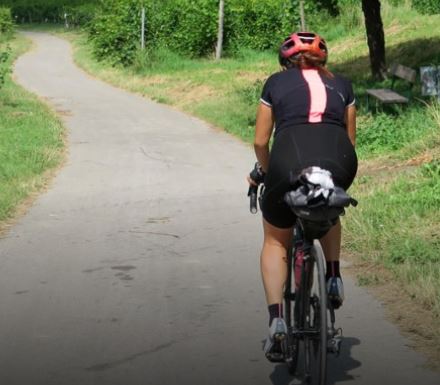
Safety Tips for Riding Solo – We Love Cycling magazine
Biking Safety Tips: 31 Ideas for Staying Safe While Biking | SafeWise
Bicycle Safety Tips for Female Travelers | Unearth Women
Trouble Can Emerge At Any Time, So Be Alert, Be Ready (modernsurvivalblog.com)
50 Personal Security Tips (modernsurvivalblog.com)
3 Ways to Protect Yourself from Sexual Predators – wikiHow

6. Be alert. Never ride with headphones or an earpiece. You need to hear everything you possibly can.
(Source: Biking Safety Tips: 31 Ideas for Staying Safe While Biking | SafeWise)
HIKING ALONE


What’s Behind You?
You’ve heard the saying “Have eyes in the back of your head”. There’s a reason for that. Many (most?) attacks come from behind!
Hardly anyone (who I observe) ever looks behind them.
This is because it requires a conscious effort to actually turn your head and look behind. It’s not as subconscious a behavior as being observant of what’s out of place, etc.
The more you train yourself to do it though, the more instinctive it will become, and eventually it will not be an intrusive action which interrupts your thought process or conversation, etc.
Use your ears to hear what’s behind you.
The more alert you become, the easier it will be to recognize your sixth-sense when it speaks to you. Trust your instinct when it doesn’t ‘feel right’. Turn and glance behind you.
(Source: Trouble Can Emerge At Any Time, So Be Alert, Be Ready (modernsurvivalblog.com)
Scared to run alone? Women runners share their best safety tips (nbcnews.com)
Running Safety Tips for Women | Shape
14 Running Safety Tips For Runners Who Like To Run Alone (womensrunning.com)
4 Essential Safety Tips for Female Runners (runnersconnect.net)
4 Running Safety Tips A Self-Defense Specialist Says To Know (womenshealthmag.com)
9 common-sense safety tips for women who run — and everyone else – Los Angeles Times (latimes.com)
Basic Street Safety for Women : 11 Steps (with Pictures) – Instructables
10 Best Personal Self Protection Devices for Women in 2021 (expertsecuritytips.com)

- Always tell someone where you are going.
- Stay on well-traveled and well-lit roads. Don’t take shortcuts through woods, poorly lit areas, etc.
- If possible, run with a dog, a group or at least one other person.
- Ditch the headphones.
- Bring your phone.
- If someone looks shady to you, cross the street or go the other way.
(Source: 14 Running Safety Tips For Runners Who Like To Run Alone (womensrunning.com)
SHOPPING ALONE
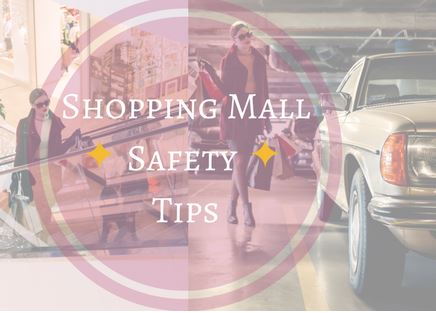
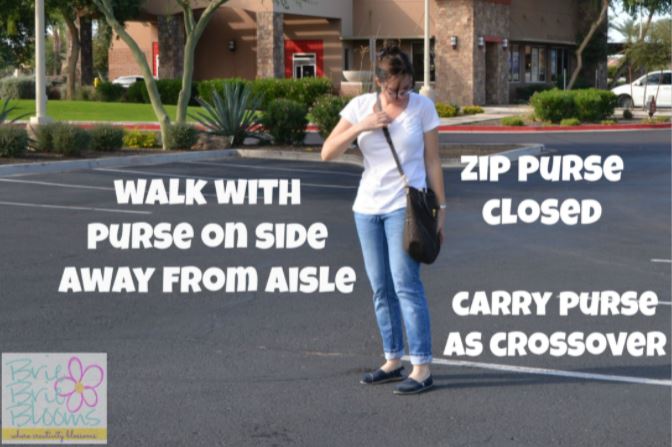
These Tips are NOT just for Holiday Shopping!
10 Best Personal Self Protection Devices for Women in 2021 (expertsecuritytips.com)
Parking Lot Safety for Women FAQ (crime-safety-security.com)
8 Safety Tips for Women from a Woman Cop (corporatetravelsafety.com)
21 Personal Security Tips While You’re Out Shopping (modernsurvivalblog.com)
10 Basic Safety Tips for Women – Mom with a PREP
Basic Street Safety for Women : 11 Steps (with Pictures) – Instructables
Holiday Shopping Safety Tips (thoughtco.com)
Holiday Shopping Safety Tips: 10 Things Every Shopper Should Know (theheartysoul.com)
20 Personal (General) Safety Tips for Women (ezinearticles.com)
50 Personal Security Tips (modernsurvivalblog.com)
50 Ways to Keep Yourself Safe from Sexual Assault | TBOTECH
3 Ways to Protect Yourself from Sexual Predators – wikiHow

3. During the night, park up close to the entrance, under or near a light.
4. Make a conscious effort to keep your head out of your phone!
5. Don’t stare straight ahead while you walk.
6. Don’t just look downward at your foot path in front of you while you walk.
7. Casually look around while you walk!
8. Don’t slouch. Keep your shoulders back and chin up. Look confident! Be aware of your body language.
9. Look further ahead than just your immediate path to observe what’s going on up there…
10. Change your course if it doesn’t ‘feel right’ ahead.
11. If a stranger approaches you with a question, it may be someone up to ‘no good’. Keep walking and avoid engagement. You may be being ‘sized up’.
(Source: 21 Personal Security Tips While You’re Out Shopping (modernsurvivalblog.com)
31 Safety Tips for Solo Female Travelers from the Experts (bemytravelmuse.com)
14 Safety Tips for Uber and Lyft Riders | Safety.com
Travel Solo With These Expert Travel Safety Tips for Women (ottsworld.com)
45 Incredibly Useful Safety Tips For Women Traveling Alone (buzzfeed.com)
Tips for Traveling Alone as a Woman in 2021 (fodors.com)
20 Hotel Safety Tips for Women Traveling Alone – NerdWallet
25 TIPS TO STAY SAFE AS A SOLO FEMALE TRAVELER | HOW I MADE IT OUT ALIVE — Hey Ciara
10 Best Personal Self Protection Devices for Women in 2021 (expertsecuritytips.com)
50 Ways to Keep Yourself Safe from Sexual Assault | TBOTECH

Trust your gut.
1. “Politeness is never more important than safety. While the world would be a better place if everyone was thoughtful and kind, sometimes people – especially women – let courtesy override our gut instincts because we don’t want to be rude or be told we’re “overreacting.” But we should always trust our intuition, stop worrying about what other people think, be nice when it’s warranted, and choose safety when it’s not.” – Katie, Domestiphobia
6. Sofie from Wonderful Wanderings adds, “Don’t flaunt your valuables too much” which should seem obvious, but you’d be surprised how many people I see with their phones out on city streets or wearing jewelry when they travel! Just keep it hidden or at home. You don’t need to wear expensive rings and earrings when you travel.
7. Avoid listening to music with earbuds in while walking around in a city. It makes you less aware of your surroundings and also usually signifies to a would-be mugger that you probably have a smart phone in your pocket.
(Source: 31 Safety Tips for Solo Female Travelers from the Experts (bemytravelmuse.com)
They look like necklaces, bracelets, keychains, fitness bands, and even scrunchies but they are actually safety devices! There is a button hidden on the backside. Double-click the button to immediately text up-to five emergency contacts a link to your GPS location & to let them know you need help. Enable the free 9-1-1 feature (US & Canada only) to connect with 9-1-1 dispatchers.
invisaWear® uses the same emergency response technology as ADT, the #1 name in security, so you can be confident help will be there when you need it the most. With ADT and invisaWear®, if you’re feeling unsafe, you don’t have to worry about finding your phone, opening an app or making a call. Actually, you don’t have to worry about much of anything. Because safety is built right into your outfit. So relax, help is always at hand. Click here to visit Invisiwear
WORKING AND WALKING ALONE AT NIGHT


Working alone at night – How to stay safe – StaySafe (staysafeapp.com)
Five Safety Tips For Working Alone At Night
(Infographic) (first2helpyou.co.uk)
14 Safety Tips for Uber and Lyft Riders | Safety.com
Working Alone – General : OSH Answers (ccohs.ca)
50 Personal Security Tips (modernsurvivalblog.com)
Trouble Can Emerge At Any Time, So Be Alert, Be Ready (modernsurvivalblog.com)
5 Safety Tips For Women Who Walk Alone at Night
4 Ways to Walk Safely at Night – wikiHow
8 Safety Tips for Women from a Woman Cop (corporatetravelsafety.com)
When is working alone not ok? Lone worker law and legislation – StaySafe (staysafeapp.com)
50 Ways to Keep Yourself Safe from Sexual Assault | TBOTECH
3 Ways to Protect Yourself from Sexual Predators – wikiHow
Personal Safety For Those Working The Night Shift | Medical Alarm Resources | LifeFone
When People Sick At Work Get You Sick (modernsurvivalblog.com)

Here are a few of our best practice steps for those working alone at night:
- Make sure your family and friends know where you are, who you’re with and when you anticipate leaving. Staying in constant communication will alert your family if something is out of the ordinary.
- Make use of any onsite security personnel, if any, when you leave your office and walk to your car.
- Keep your phone and car keys handy. If you start to feel stressed you don’t want to find yourself fumbling around in your purse or pockets for keys and your phone.
- Stay alert – don’t wear headphones while you work.
When you leave:
- Ask for an escort to your car if there is onsite security personnel.
- Lock your car as soon as you get inside.
- Call your family to let them know you’re in your car and are on the way home.
(Source: Personal Safety For Those Working The Night Shift | Medical Alarm Resources | LifeFone)
Ripple is “the world’s first wearable support network” ~ a wearable safety device that keeps you – or a loved one – connected to a professional monitoring team 24 hours a day, 7 days a week, anywhere in the United States.
The device itself consists of a small square-shaped device that can easily be clipped onto a zipper – say, the zipper on your jacket. This is called the Ripple Button.
After clipping the device on your zipper, you enjoy 24/7 monitoring anywhere in the United States by a professional team of safety experts.
As the makers of Ripple explain, the “team knows all your vital information ahead of time, saving you invaluable time during an emergency situation.”
To activate Ripple’s emergency response, you tap the button three times. This contacts the Ripple team, then immediately dispatches emergency responders to your location.
Who is Ripple Designed For?
Here are some of the reasons why the creators of Ripple want you to use their device:
- Walking back to your dorm at night across campus
- Walking to your car in a poorly-lit parking lot
- Walking home through your neighborhood at night
- Investigating a suspicious sound at night in your backyard
- Lost in an unknown city or part of town you’ve never been in before
- When you “need a convenient interruption to disrupt an awkward encounter”
Essentially, Ripple is an emergency call button you can press at any time to alert emergency services.
Top 10 Safety Tips For Women (issuesiface.com)
[Book referenced in article: Total awareness: A woman’s safety book: Laur, Darren: 9781550390988: Books – Amazon.ca]
Being Street Smart (modernsurvivalblog.com)
10 Best Personal Self Protection Devices for Women in 2021 (expertsecuritytips.com)
Microsoft Word – Personal Safety Tips for Older Adults.doc (PDF) (escondido.org)
How to Stay Safe at Night (with Pictures) – wikiHow
How to Stay Safe at Night Solo: 17 tips – Solo Traveler (solotravelerworld.com)
14 Tips for Safe Online Shopping | PCMag
50 Personal Security Tips (modernsurvivalblog.com)
Trouble Can Emerge At Any Time, So Be Alert, Be Ready (modernsurvivalblog.com)
How to spot a sexual predator – the 8 characteristics – Healthista
Tips on How to Prevent Kidnapping and Protect Yourself | TBOTECH
Awkward job interview or human trafficking?
7 ways to tell if a job posting is actually human sex trafficking (theamericangenius.com)
Bumble CEO on Supporting Survivors and Creating Safer Dating Experiences (RAINN – June 7, 2021)
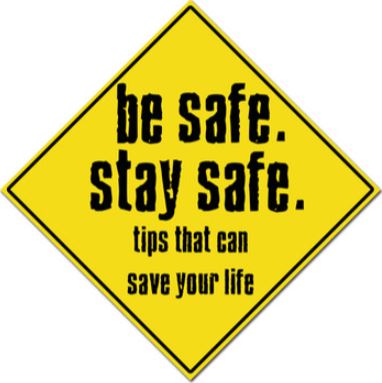
8 Safety Tips for Women from a Woman Cop (corporatetravelsafety.com)
10 Tips For Women Versus The Predator (modernsurvivalblog.com)
50 Ways to Keep Yourself Safe from Sexual Assault | TBOTECH
3 Ways to Protect Yourself from Sexual Predators – wikiHow
How to Protect Your Children from Predators like Jeffrey Epstein | Working Mother
For Parents, Family Members, Teachers, Educators, Young Adults & Teens
Internet Safety for Kids | How to Keep Your Kids Safe Online
(Source: Consumernotice.org | Written By : Terry Turner | Edited By : Kim Borwick | Last Modified: August 18, 2021)
Threats to children’s internet safety include invasions of privacy, cyberbullying, sexting and harassment. Options to protect your children include parental controls, apps and tracking software. But the most effective way to keep your kids safe is to talk with them about online risks, how to avoid them and how they can come to you when something goes wrong.
Internet safety for kids depends on parents being aware of online risks and understanding how to help their children and teens avoid them.
Almost every American child and teen has access to the internet. They socialize in online games or on smartphones just as they would on a playground. They live largely in a digital community. But like any community, there are risks and dangers.
Parents are the best suited to monitor kids’ online activity. They are also the most trusted adults most kids will turn to if they experience online dangers. Understanding what your children or teens do online is vital to protecting them from digital threats. . .
What Are Kids Doing Online?
~ 30 percent have used the internet in ways their parents wouldn’t approve
~ 21 percent have visited sites where they can chat with strangers
~ 17 percent have visited porn sites
~ 11 percent have visited sites that offer ways to cheat on homework
~ 4 percent have visited online gambling sites
Source: Children’s Internet Usage Study, Center for Cyber Safety and Education (Grades 4-8)
TOPICS in article:
♦ How Children and Teens Get Online
♦ Online Dangers to Discuss with Your Kids
♦ How to Set Rules
♦ Steps You Can Take to Protect Your Children Online
♦ Using Tech and Apps to Protect Your Kids Online
♦ Monitoring, Tracking and Limiting Your Child’s Online Activity
♦ Filtering Out Inappropriate Content
♦ How to Teach Your Kids to Use Their Smartphones Responsibly
♦ Your Child’s First Smartphone | 5 Things to Think About
♦ Make Sure Your Teen Understands the Dangers of Texting and Driving
♦ Teaching Your Teens How to Use Social Media Safely
♦ Tips for Teen Safety on Social Media
♦ Cyberbullying Prevention
♦ Signs Your Child Is Being Cyberbullied
♦ What Parents Can Do to Deal With Cyberbullies
♦ Teach Your Child How to Stand Up for Cyberbully Victims
♦ How to Talk to Your Teens About Sexting | 5 Things to Tell Your Teens About Sexting
♦ What You Should Know About Your Kids and Online Gaming
♦ How to Keep Your Child Safe in Online Gaming
♦ What to Do If Your Child’s Safety Is Threatened Online
6 Tips to Keep Kids Safe on TikTok
- Adjust your child’s privacy settings. For kids under 16, we recommend setting their account to private. …
- Manage comments. Tell your kids never to read the comments or disable them entirely. …
- Set time limits. While many are relaxing time limits during quarantine, boundaries are good to keep a healthy balance.
- Communicate. Communication is so important, keep talking to your kids so they know they can come to you if they have a problem.
- Check followers. Keep an eye on who is following your kids if you let them go on the app without you.

Read Blog article:
Read Blog article:
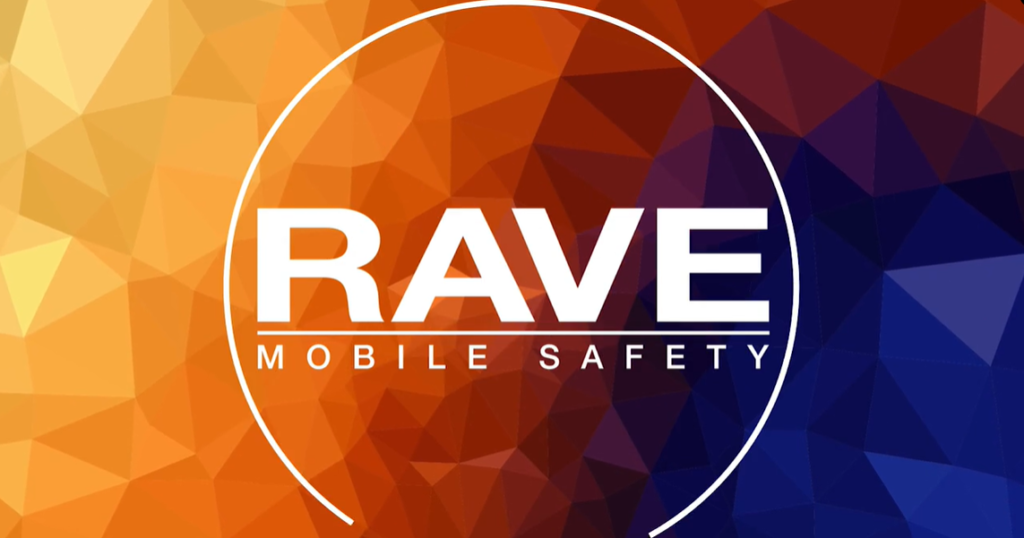
Learn more about the Rave app
Enlisting Smartphones in the Campaign for Campus Safety App developers are creating innovative ways for students to reach safety in risky situations. Load some of these tools onto your smartphone so you can quickly communicate with emergency contacts if you feel threatened or unsafe.
“Rave Guardian is a custom-branded personal safety app that helps higher education institutions, businesses and healthcare organizations connect and engage with their communities wherever they are.”
DID YOU KNOW. . .
YOU CAN DOWNLOAD A TECH SAFETY APP TO PROTECT YOUR TECHNOLOGY, PRIVACY AND SAFETY!
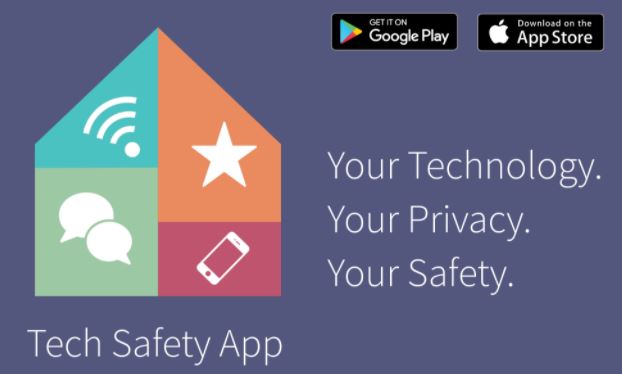
Tech Safety
(Safehorizon.org)
“Computers, tablets, phones, apps, and social network sites impact how we connect to the world every day. They can offer help, valuable resources, and support if you are experiencing domestic violence or stalking. As you use technology and plan for your safety in these situations, it is also important to be aware of the risks. The information below can help you to use technology in more informed, safer ways. These tips provide suggestions for you to be aware of. But you are the only one who can decide what is best for you and your safety.” https://www.safehorizon.org/tech-and-cyber-safety/
- English and Spanish
- Online Safety
- Networking Safely on Social Media
- Phone Safety
You can download Tech Safety Tips in English and Spanish.
Top 15 Best Self Defense Apps For Woman Safety And Security
August 7, 2021 | Easy Tech Trick3 Comments

Don't forget to LOCK UP at Home!!
